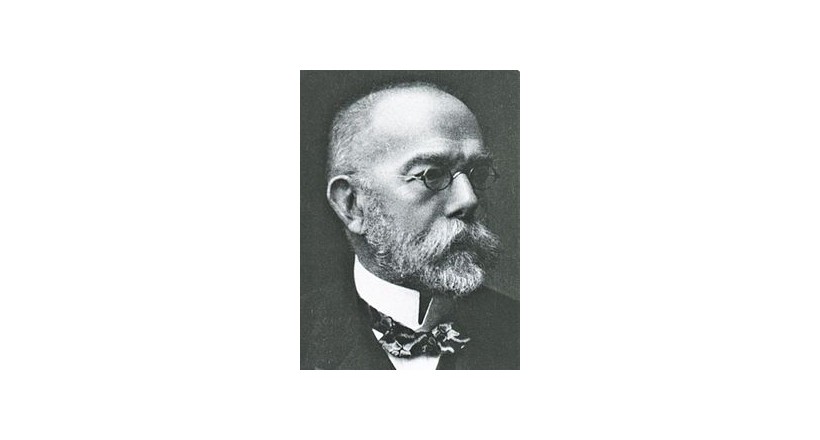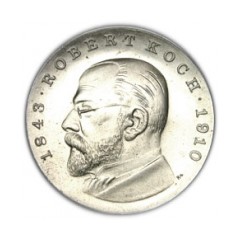Heinrich Hermann Robert Koch
was a German physician and microbiologist. As one of the main founders of modern bacteriology, he identified the specific causative agents of tuberculosis, cholera, and anthrax and gave experimental support for the concept of infectious disease, which included experiments on humans and other animals. Koch created and improved laboratory technologies and techniques in the field of microbiology, and made key discoveries in public health. His research led to the creation of Koch's postulates, a series of four generalized principles linking specific microorganisms to specific diseases that remain today the "gold standard" in medical microbiology. For his research on tuberculosis, Koch received the Nobel Prize in Physiology or Medicine in 1905. The Robert Koch Institute is named in his honour.Koch was born in Clausthal, Germany, on 11 December 1843, to Hermann Koch (1814–1877) and Mathilde Julie Henriette (née Biewend; 1818–1871). Koch excelled in academics from an early age. Before entering school in 1848, he had taught himself how to read and write. He graduated from high school in 1862, having excelled in science and math. At the age of 19, Koch entered the University of Göttingen, studying natural science. However, after three semesters, Koch decided to change his area of study to medicine, as he aspired to be a physician. During his fifth semester of medical school, Jacob Henle, an anatomist who had published a theory of contagion in 1840, asked him to participate in his research project on uterine nerve structure. In his sixth semester, Koch began to research at the Physiological Institute, where he studied the secretion of succinic acid, which is a signaling molecule that is also involved in the metabolism of the mitochondria. This would eventually form the basis of his dissertation. In January 1866, Koch graduated from medical school, earning honors of the highest distinction.





